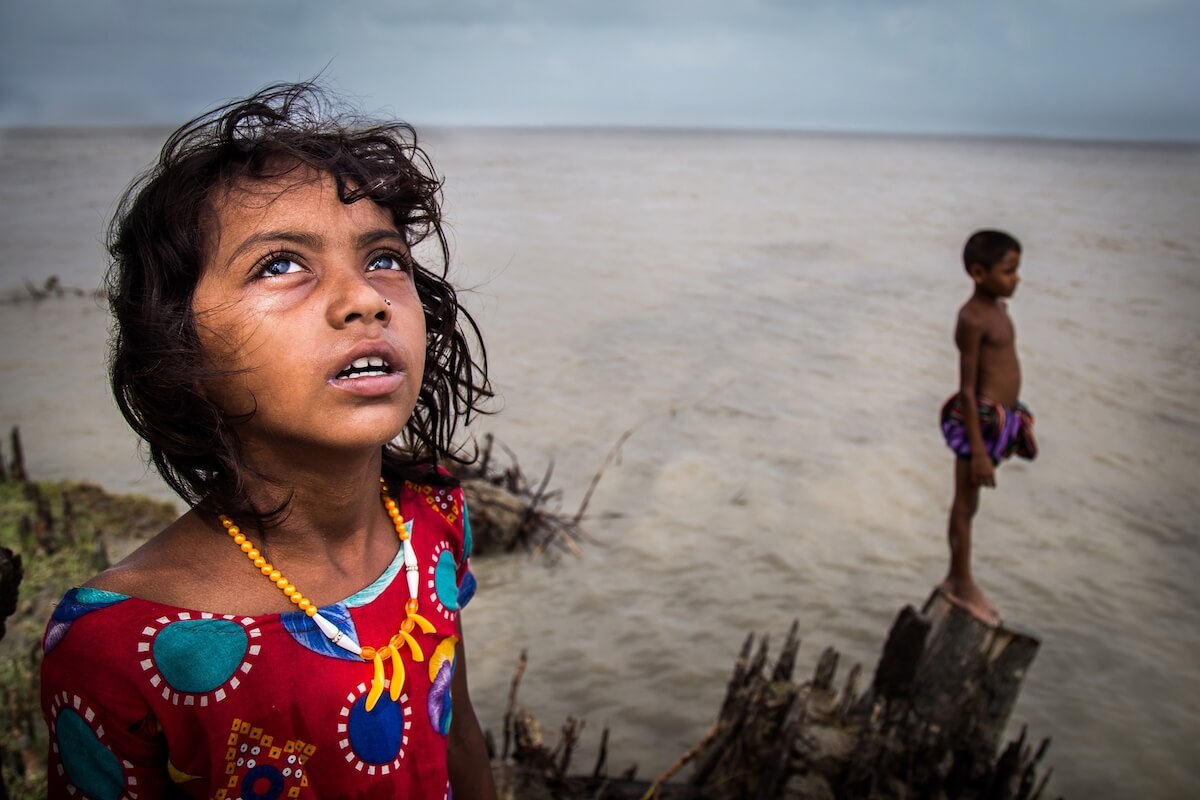



Interview with Moniruzzaman Sazal
BIFA 2021 Winner, 1st Place, Non-Professional Editorial category, “Waiting For The Last Wave”
Q: Tell us a bit about your background? How did you discover your love for photography?
Photography has held significant meaning for me all my life. About eight years ago, I took up professional training classes and started working as a photographer. Since then, I have done many photography projects on different issues. I am passionate about photography; taking photos is an integral part of my life. When I first interacted with a camera, I was very young, and I have not stopped since then. I was sure from the beginning that this was the field I wanted to be a part of.
Q: What was your last work and how did the initial spark of inspiration come about?
Presently I am working on a long term project on the effect of Climate change. Photography means different things to different people. For some, it is a form of self-expression. For others, it is merely a conquest. For me, it is a form of conversation. If the subject is caught well, it communicates on a different level with different viewers. It is a beautiful way of communicating.
Q: You were awarded Non-Professional Editorial Photographer of the Year 2021 for your work, Waiting for the Last Wave. Can you tell us more about this project and how it came to be? Why did you choose this particular subject?
I am honoured that my long term project Waiting for the last wave was awarded Non-Professional Editorial Photographer of the Year 2021. Thanks to BIFA authorities and all judges. Actually, “Waiting for the last wave” is one of the series from my long term documentary project on the effect of Climate change. Climate change affects every aspect of the natural environment. What’s more, each of these impacts often causes changes that affect other parts of the environment, essentially producing a chain-reaction of changes within the ecosystem. My main objective of photography is to tell people’s sufferings and highlight climate problems that exist in this world. I believe that capturing the effect of climate change through photographs can be the best way to make people aware.
Q: Is Editorial photography your main genre, or do you enjoy creating in other genres as well?
Editorial is not my primary genre. I have been working on different projects that mainly cover climate change issues with its effect on lives, natural diversity, odds and discrimination in society, cultural diversity, and unity of religion. I love travel and street photography as well.
Q: What does winning this award mean to you?
An award means a lot to me. It brings happiness along with a kind of fear. It brings fear because the award is the responsibility that audiences and viewers have put on us. So a photographer winning an award should always try to give his best of himself to the audience.
Q: What would be your dream project in photography if there would be no budget limits and you could travel anywhere, photograph anything/anyone?
Actually, I want to work effectively on climate change in broader aspects. Global climate change has already had observable effects on the environment. Glaciers have shrunk, ice on rivers and lakes is breaking up earlier, plant and animal ranges have shifted, and trees are flowering sooner. Effects that scientists had predicted in the past would result from global climate change are now occurring: loss of sea ice, accelerated sea-level rise and longer, more intense heat waves. So I want to travel around the world and capture the visual effects of climate change. I want to show the world that climate change is real, and we need to be aware of that.
Q: What is the one piece of advice that you received in the past about photography that you follow to this day?
“The Day You Think You Know Everything Is the Day You Stop Improving” Okay, this bit of advice didn’t come from a fellow photographer, but from my mentor when I just got started as a professional equestrian. But, I think this is single-handedly the most significant bit of advice I’ve ever been given because it holds to just about everything we do in life–including photography. As our skills progress and we gain more and more recognition, maybe start making some sales and picking up some excellent paying jobs, it’s easy to become distracted by that success and set aside the educational process. But, the very second we think we know enough about what we’re doing to stop actively learning new techniques is the very second we stop getting better.
Q: Are you working on something new right now? Can you tell us a little bit about it?
Presently I am working on Kirtan song performer. Kirtan, is a deep dive into the heart through a co-created song. It also refers to a genre of religious performance arts, connoting a musical form of narration or shared recitation, particularly of spiritual or religious ideas, native to the Indian subcontinent. Kirtan as a sacred music genre has been a significant part of the Vaishnavism tradition.